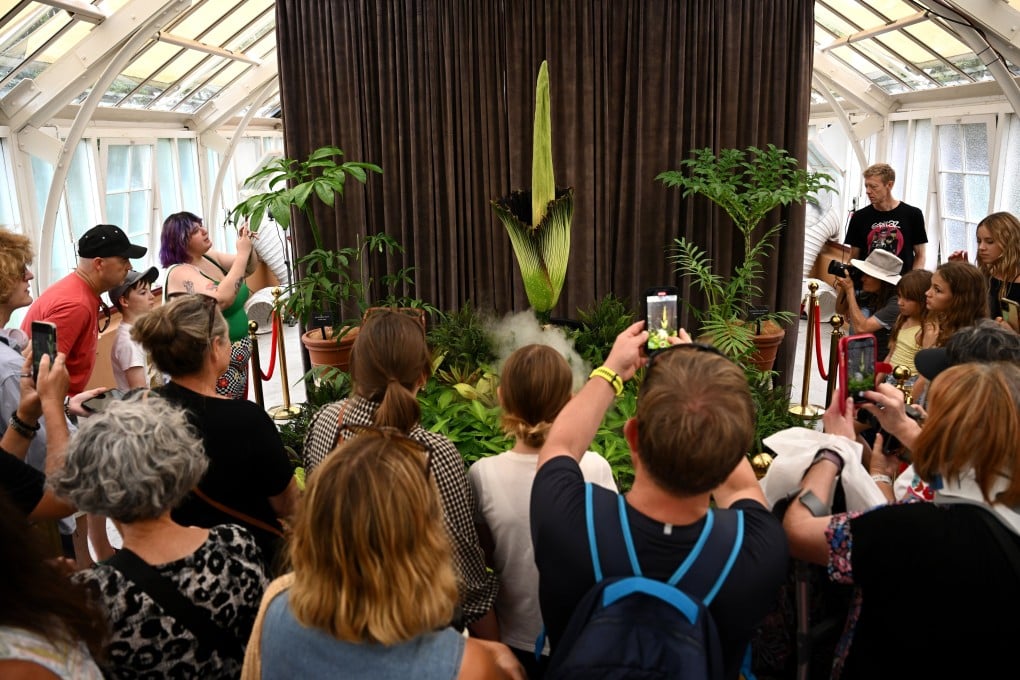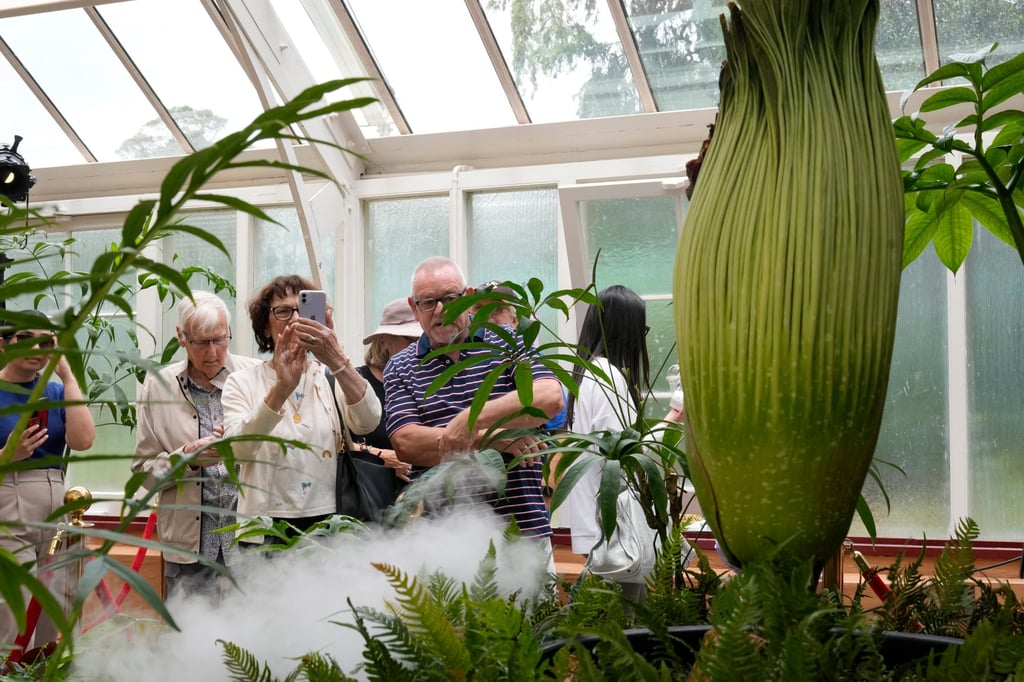Australians queue for plant’s ‘amazing’ stink of rotting garbage
The corpse flower exudes a fragrance evoking gym socks and rotting garbage, in the 24 hours that it blooms

The rare unfurling of an endangered plant that emits the smell of decaying flesh drew hundreds of devoted fans to a greenhouse in Sydney on Thursday where they joined three-hour queues to experience a momentous bloom – and a fragrance evoking gym socks and rotting garbage.
But to fans of this specimen, she is Putricia – a portmanteau of “putrid” and “Patricia” eagerly adopted by her followers who, naturally, call themselves Putricians. For a week, she has graced a stately and gothic display in front of a purple curtain and wreathed in mist from a humidifier at the Royal Sydney Botanic Garden.
Her rise to fame since has been rapid, with up to 20,000 admirers filing past for a moment in her increasingly pungent presence. No corpse flower has bloomed at the garden for 15 years.
The plant only flowers every 7 to 10 years in the wild.

“The fact that they open very rarely, so they flower rarely, is obviously something that puts them at a little bit of a disadvantage in the wild,” said garden spokesperson Sophie Daniel, who designed Putricia’s kooky and funereal display. “When they open, they have to hope that another flower is open nearby, because they can’t self-pollinate.”
